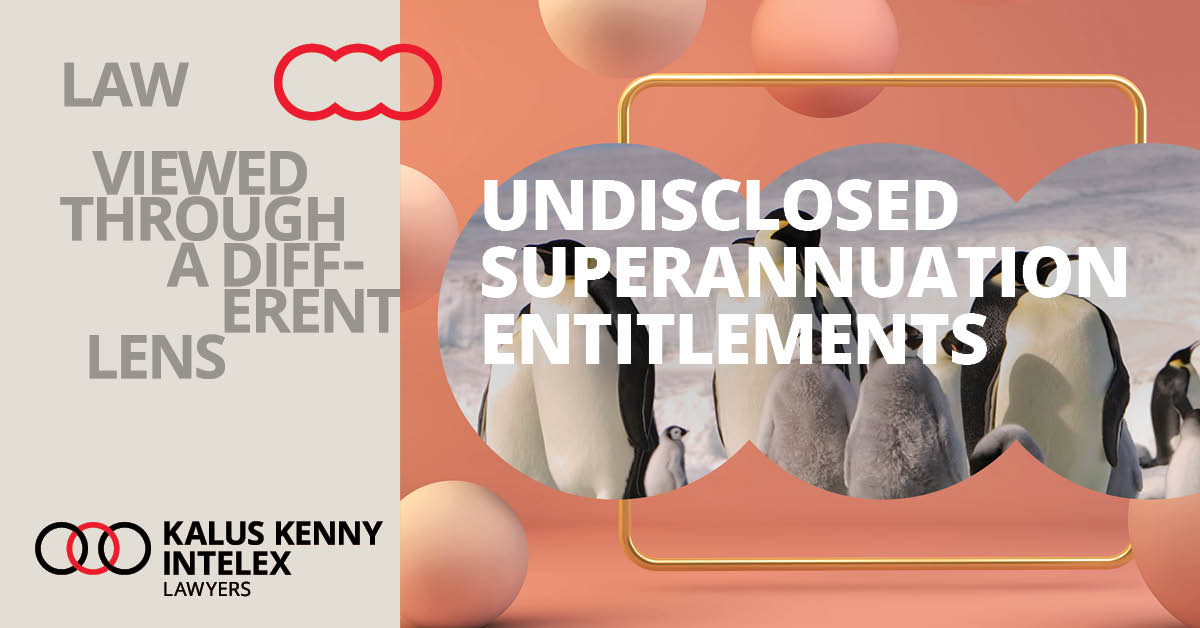You can run but you can’t hide! With new legislation enabling parties to obtain details of their former partner’s superannuation entitlements, superannuation can no longer be hidden from former spouses during family settlements.
The reality is that people often have more than one superannuation fund if they have had multiple employers. They simply may not have consolidated their funds.
However, in the case of a family separation, a party will sometimes change superannuation funds, or set up a separate self-managed superannuation fund, to segregate entitlements acquired from post-separation income, or to have the freedom to manage a self-managed superannuation fund, without consultation or consent of their former spouse. It may also be that a party has superannuation entitlements in funds prior to the commencement of a relationship, of which their spouse has no knowledge.
The problem
While parties to a family law matter have a duty to provide full and frank disclosure of their financial position, sometimes this is not complied with and a party may not disclose all their superannuation entitlements to the other party.
It has historically been a difficult exercise to track down a party’s undisclosed superannuation entitlements, especially if they are no longer contributing to that fund or there is no corporate trustee which is identified from ASIC searches. Excluding undisclosed superannuation entitlements from a property settlement can lead to an unfair outcome and potentially other unintended consequences.
The legislative solution
The Federal Government recently passed legislation which, from 1 April 2022, will enable a party apply to the Federal Circuit and Family Court of Australia (FCFCOA) to request that the Australian Taxation Office (ATO) provide the court with details of their former partner’s superannuation interests.
The practical reality
A party’s obligation to provide full and frank disclosure of their financial circumstances, including superannuation interests, has been strengthened by the introduction of the FCFCOA Rules, coming into effect from 1 September 2021.
The FCFCOA Rules require parties to comply with extensive pre-action procedures to attempt to resolve their matter before resorting to court proceedings, including providing full and frank disclosure.
Parties are also required, when issuing court proceedings to sign an undertaking to the court that they have complied with, and will continue to comply with, the duty of disclosure.
If a party has not complied with this duty, and an application to the court requesting the ATO provide superannuation information becomes necessary, and reveals undisclosed superannuation interests, it is likely costs orders would be made against the non-disclosing party in relation to that application.
Moreover, the court may also make an order that a party is in contempt in court by breaching the undertaking provided to the court, or charged with an offence if it is determined a party provides the undertaking which they knowingly, or should reasonably have known, is false or misleading.
Conclusion
Parties and their advisers need to be mindful to ensure full disclosure is made of their financial circumstances, including all superannuation entitlements.
This new legislation makes it impossible to “hide” superannuation interests which, before this legislation, may have been harder for a former spouse to identify.
The consequences of non-disclosure of these interests, if an application under the new legislation is made, simply make it not worth the risk.



